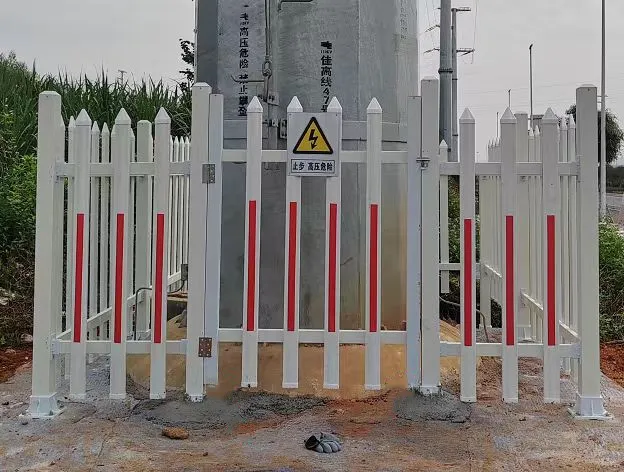loading...
- No. 9, Xingyuan South Street, Dongwaihuan Road, Zaoqiang County, Hengshui, Hebei, China
- admin@zjcomposites.com
- +86 15097380338
- Welcome to visit our website!
High-Strength Fiberglass Grating Panels for Durable Industrial Applications
Understanding Fiberglass Grating Panels Benefits and Applications
Fiberglass grating panels are increasingly becoming a popular choice in various industries due to their durability, versatility, and cost-effectiveness. Made from reinforced plastic materials, these panels provide an excellent alternative to traditional materials like steel and aluminum. As industries continue to seek materials that are both robust and lightweight, fiberglass grating panels have emerged as a favored solution for many applications.
What are Fiberglass Grating Panels?
Fiberglass grating panels are constructed using a process called pultrusion, where fiberglass strands are pulled through a resin to create a solid, durable material. The grating itself is made of a grid-like pattern that can be molded into various shapes and sizes, depending on its intended use. The panels feature a non-slip surface, which enhances safety in environments prone to spills or wet conditions.
Key Advantages of Fiberglass Grating Panels
1. Corrosion Resistance One of the most significant benefits of fiberglass grating panels is their resistance to corrosion. Unlike steel, which can rust over time when exposed to moisture, fiberglass does not corrode, making it ideal for use in harsh environments such as chemical plants, wastewater treatment facilities, and marine applications.
2. Lightweight and Easy to Handle Fiberglass grating is considerably lighter than metal alternatives, which simplifies handling and installation. This feature also translates to reduced shipping costs and easier transportation, particularly in locations where heavy lifting equipment may not be available.
3. Low Maintenance Requirements The non-porous nature of fiberglass material means that it is easy to clean and does not support the growth of mold or mildew. Regular maintenance is minimal, which can lead to significant cost savings over time.
4. Safety Features With customizable surface options, fiberglass grating can include anti-slip surfaces and different color choices for visual safety cues. This makes it a suitable option for public walkways, industrial environments, and anywhere safety is a priority.
5. Versatility of Uses Fiberglass grating panels can be adapted to various applications. They are commonly used in flooring, walkways, platforms, and stairways, among other uses. Their strength-to-weight ratio enables them to support significant loads while being less cumbersome than traditional materials.
fiberglass grating panels

6. Environmental Benefits Many fiberglass grating manufacturers have made strides in sustainability by utilizing recycled materials in their products. Additionally, the longevity and durability of fiberglass contribute to reduced waste over time.
Applications of Fiberglass Grating Panels
1. Industrial Facilities Due to their resistance to chemicals and corrosive environments, fiberglass grating panels are widely used in industrial flooring applications, including chemical processing plants and manufacturing facilities.
2. Marine Applications With exposure to saltwater and moisture, fiberglass grating panels are ideal for docks, piers, and fishing vessels, providing a safe and durable walking surface.
3. Wastewater Treatment Plants The non-corrosive properties of fiberglass make it suitable for environments with high humidity and exposure to harsh chemicals, thus ensuring a longer lifespan compared to traditional materials.
4. Commercial Settings Retail and commercial properties also benefit from fiberglass grating, particularly in areas that require both functionality and aesthetic appeal. The variety of colors and designs can complement any architectural style.
5. Parking Structures Fiberglass grating is increasingly being used in parking structures and ramps, as its lightweight nature and strength improve load distribution while minimizing the overall building weight.
Conclusion
As the demand for effective and sustainable construction materials rises, fiberglass grating panels stand out as a premier choice. Their remarkable properties such as corrosion resistance, lightweight nature, low maintenance, and safety features make them suitable for a vast range of applications across different industries. Embracing such materials can lead to improved safety, reduced costs, and enhanced durability, making fiberglass grating panels a smart investment for current and future projects. As industries evolve, the versatility of fiberglass will continue to play a vital role in shaping the design and infrastructure of tomorrow.
-
The Rise of FRP Profiles: Strong, Lightweight, and Built to LastNewsJul.14,2025
-
SMC Panel Tanks: A Modern Water Storage Solution for All EnvironmentsNewsJul.14,2025
-
GRP Grating: A Modern Solution for Safe and Durable Access SystemsNewsJul.14,2025
-
Galvanized Steel Water Tanks: Durable, Reliable, and Ready for UseNewsJul.14,2025
-
FRP Mini Mesh Grating: The Safer, Smarter Flooring SolutionNewsJul.14,2025
-
Exploring FRP Vessels: Durable Solutions for Modern Fluid HandlingNewsJul.14,2025
-
GRP Structures: The Future of Lightweight, High-Performance EngineeringNewsJun.20,2025
